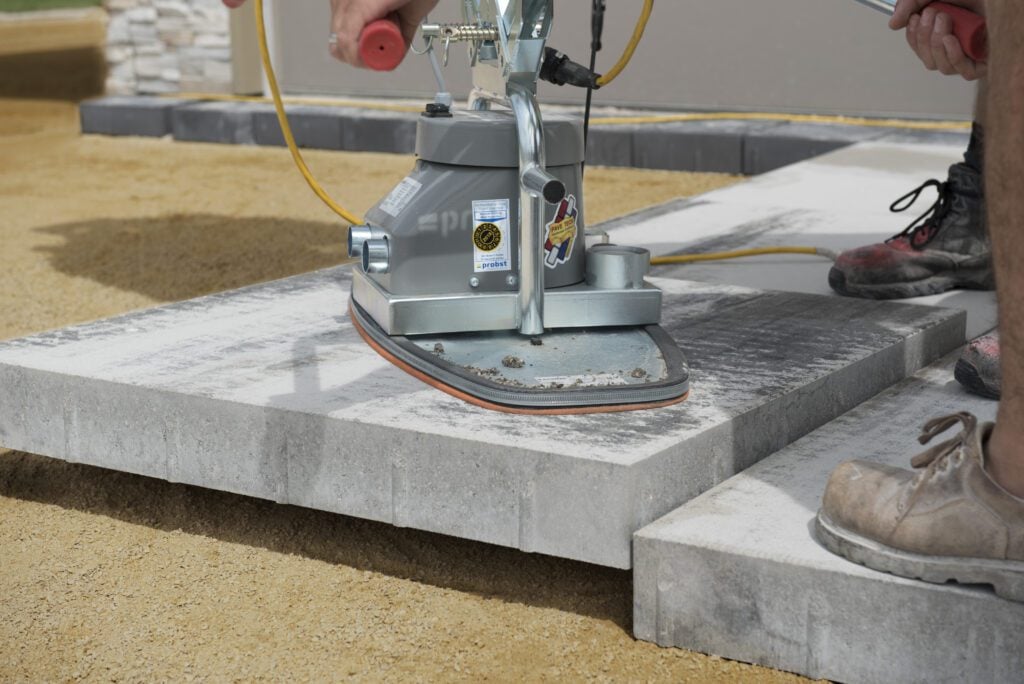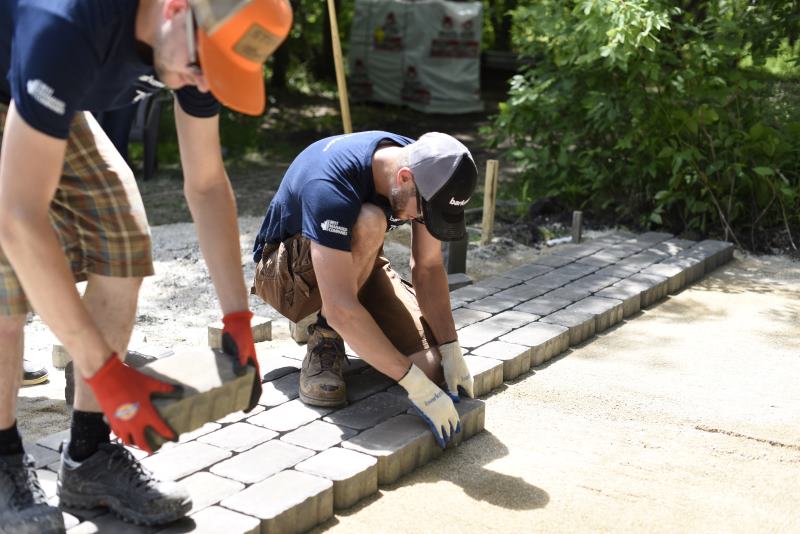Written by Barkman Concrete Published on May 1st, 2023
Update: ICPI and NCMA have united to form the Concrete Masonry & Hardscapes Association (CMHA). ICPI certification will soon be under the CMHA name.
Are you planning to install a new patio or driveway using interlocking concrete pavement? We strongly recommend hiring an ICPI (Interlocking Concrete Pavement Institute) Certified Concrete Paver Installer for the job. In this blog post, we’ll explore the benefits of hiring a certified installer and how it can give you confidence that the job will be done right the first time.

What Makes an Installer ICPI Certified?
ICPI certified installers are trained professionals who have installed at least 10,000 square feet of pavers and have attended a 2-day intensive training course on industry best practices for interlocking concrete paver installation. They have also passed a written certification exam, proving their in-depth knowledge of the field. Moreover, these certified installers are required to complete continuing education requirements to stay up to date with the latest industry standards and practices. By hiring a certified installer, you can trust that your project will be completed using the most current and effective techniques.
How to Choose the Right Contractor for Your Paver Project
Choosing the right contractor for your interlocking concrete paver project is critical to ensure quality installation. ICPI recommends getting written proposals from at least three contractors and having them visit your home before providing a proposal. While the lowest bid may seem attractive, it’s not always the best choice. To ensure a quality installation, ask potential contractors about their experience, training, and percentage of business dedicated to paver installation.
Effective communication and collaboration with your contractor are key to ensuring a smooth installation process for your interlocking concrete pavers. Before starting the project, your contractor should work with you to identify a convenient area for the delivered pavers, crushed stone, and bedding sand. It’s also important for the contractor to follow local regulations and any applicable Homeowner’s Association guidelines regarding temporary street storage of pavement materials. Additionally, your contractor should contact the local utility location service to mark underground utilities, although it’s important to note that this service does not locate buried irrigation pipes or other objects. As the homeowner, you can help the contractor by identifying the location of these obstructions.
What Can Happen if Your Pavers Aren’t Installed Properly?

There are a few things that can happen if your contractor is inexperienced or does not install your pavers correctly. Here are some things to look out for and their causes:
Sunken areas. This could be due to a base that was not compacted well enough, or the use of improper materials in the base. In either case, the result is that the pavement is not holding up as it should under normal traffic loads.
Collapsing borders. This can also be caused by an insufficiently compacted base, but it can also be the result of a lack of edge restraints. Without these restraints, the pressure from surrounding units can push the edges of the pavement off the edge, leading to a messy and uneven appearance.
Uneven or heaving pavers. The result of an insufficiently deep base or too much sand in the base. These issues can cause the pavers to shift or heave out of place, creating an unattractive and potentially dangerous surface.
A messy or poor appearance. Often the result of inexperienced or rushed workers who did not take the time to properly lay the pavers or who did not follow the correct patterns. It’s important to choose a contractor with experience and a reputation for quality work to avoid these issues in the first place.
If you do notice any of these signs, it’s important to contact the contractor who installed the pavement to discuss possible solutions. It may be possible to fix the problem by addressing the underlying issue, such as re-compacting the base or adding edge restraints. In some cases, it may be necessary to start over with a new installation to ensure a safe and attractive paved area.
Concrete pavers are a durable and long-lasting option for your yard or driveway. However, the success and longevity of your project greatly depends on the expertise of the contractor you hire. That’s why it’s essential to opt for an ICPI Certified Concrete Paver Installer. Investing in interlocking concrete pavers requires careful consideration not only when choosing the right style for your project, but also when choosing a contractor. By following these guidelines and communicating effectively with your contractor, you can help ensure that your dream hardscapes renovation meets your expectations and stands the test of time.












